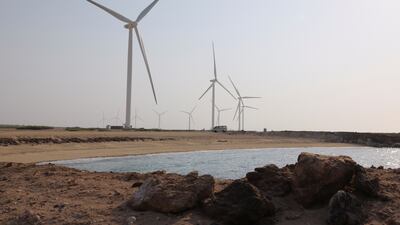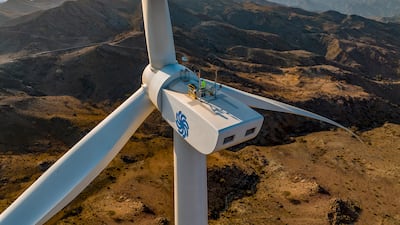Abu Dhabi clean energy company Masdar has signed an initial agreement with the Malaysian Investment Development Authority (Mida) to invest $8 billion in renewable energy projects in the South-East Asian country.
Mida and Masdar will develop up to 10 gigawatts of renewable energy projects by 2035, including ground mounted, rooftop and floating solar power plants, onshore wind farms and battery energy storage systems, the company said in a statement on Monday.
“This important agreement will see the UAE and Malaysia deepen our partnership in the development of renewable energy, directly supporting the nation’s National Energy Transition Roadmap,” said Dr Sultan Al Jaber, Cop28 President-designate and chairman of Masdar.
“It further demonstrates Masdar’s and the UAE’s commitment to supporting countries across the world,” said Dr Al Jaber, who is also Minister of Industry and Advanced Technology.
The UAE and Malaysia held a business round-table in Abu Dhabi last Friday to boost trade investment and explore new opportunities.
The round-table explored joint venture opportunities in high-growth sectors such as energy, infrastructure, logistics and food security.
Malaysia is the UAE’s 12th largest global trade partner, while the Emirates is Kuala Lumpur's second-largest trade partner in the Arab world, according to official figures. Last year, bilateral non-oil trade reached $4.8 billion, compared to $3.5 billion in 2020.
Masdar aims to expand its capacity to at least 100 gigawatts of renewable energy by the end of the decade. The company is active in more than 40 countries and has invested in or committed investments to projects worth more than $30 billion. It is also targeting green hydrogen production of one million tonnes per annum by 2030.
“We will bring all our expertise in delivering robust projects, that utilise cutting-edge technologies and generate much needed energy efficiently, to advance Malaysia’s renewable energy goals,” said Mohamed Al Ramahi, chief executive of Masdar.
Last week, MW Energy, a venture between UAE clean energy company Masdar and W Solar Investment, signed an initial agreement with Tajikistan to explore clean energy projects, marking its entry into the Central Asian nation.
In September, Masdar and Indonesia's PLN Nusantara Power signed an agreement to triple the capacity of South-East Asia's largest floating solar photovoltaic power plant.
The companies will be developing the second phase of the Cirata plant in West Java, Indonesia, which will boost its capacity by up to 500 megawatts.
"Our partnership with Masdar represents a pivotal stride in realising Malaysia's sustainable energy aspirations. It underscores our commitment to driving positive change and embracing the transition towards a greener, more sustainable future,” said Arham Rahman, chief executive of Mida.
Malaysia, one of the South-East Asia's largest economies, aims to install 70 per cent renewable capacity and phase out coal power plant completely by 2050.
As of 2020, natural gas constituted about 42.4 per cent of the country's energy supply mix, followed by crude oil and petroleum products at 27.3 per cent and coal at 26.4 per cent, according to government data.
Renewables, made up of hydropower, solar and bioenergy, represented close to 4 per cent.








